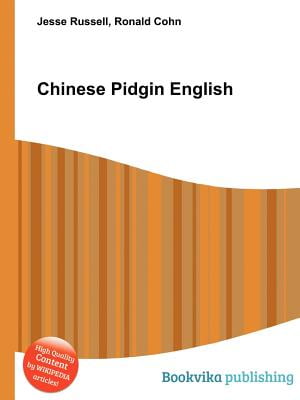
Chinese Pidgin English was very popular and was used frequently until roughly the 19th century. It is believed that many different versions of Pidgin English existed in China, as different regions spoke different dialects of Mandarin or Cantonese, which in turn influenced the way Pidgin English in those areas developed. There are over twenty different recorded types of Pidgin English including American Indian Pidgin English (a pidgin language used by Native Americans), Chinese Pidgin English (a pidgin language that is primarily based on English but includes many Chinese elements), and many others.Ĭhinese Pidgin English developed in the 17th century to enable Chinese business owners, merchants and traders to communicate with English traders. ‘Pidgin English is one of the most well-known pidgin languages but actually refers to a multitude of different languages, all based on English. However, it is very possible that this association between pigeons and communication accounts for the origin of the word ‘pidgin’. Pigeon post became less popular as the postal system developed and in today’s world of email and instant messages, messenger pigeons are generally nothing more than a curiosity or hobby. They were used frequently throughout history and extensively in the Franco-Prussian War. Homing pigeons were in fact used as messenger pigeons by ancient civilizations such as the Persians and Romans. However, others claim that the word is related to the English word ‘pigeon’. Since pidgin languages were most frequently used for business related purposes it may indeed be the case that the name evolved this way. Some claim that is evolved in the 19th century from a Chinese word that means ‘business’. The origin of the word ‘pidgin’ is uncertain.

Each pidgin language is a language in its own right and speaking a simplified version of English does not qualify the language as Pidgin English. It might sound like all broken or simplified forms of a language are pidgin languages by default but this is actually not the case. Pidgin languages also most often contain gestures, phrases and elements from many different cultures and languages. This means that pidgin languages are often used between two different language communities and though they are sometimes simplified versions of one language, they often contain words from two or more other languages. A pidgin language is most often a second language and is frequently used to facilitate trade and business transactions. Often, the vocabulary of a pidgin language comes from one language while its grammar and syntax come from another. To mind (one's) own business "attend to one's affairs and not meddle with those of others" is from 1620s.Pidgin refers to a group of languages that are grammatically simplified versions of other languages that are used in order to more easily enable communication. To mean business "be intent on serious action" is from 1856. Phrase business as usual attested from 1865. Business end "the practical or effective part" (of something) is American English, by 1874. business also could mean "sexual intercourse."īusiness card is attested from 1840 business letter from 1766. The sense of "trade, commercial engagements, mercantile pursuits collectively" is attested by 1727, on the notion of "matters which occupy one's time and attention." In 17c. The meaning "what one is about at the moment" is from 1590s. The sense of "that which is undertaken as a duty" is from late 14c. (in late Old English bisig appears as a noun with the sense "occupation, state of employment"). The sense of "a person's work, occupation, that which one does for a livelihood" is recorded late 14c. Johnson's dictionary also has busiless "At leisure without business unemployed." The modern two-syllable pronunciation is from 17c.

The original sense is obsolete, as is the Middle English sense of "state of being much occupied or engaged" (mid-14c.), the latter replaced by busyness. Old English bisignes (Northumbrian) "care, anxiety, occupation," from bisig "careful, anxious, busy, occupied, diligent" (see busy (adj.)) + -ness.


 0 kommentar(er)
0 kommentar(er)
